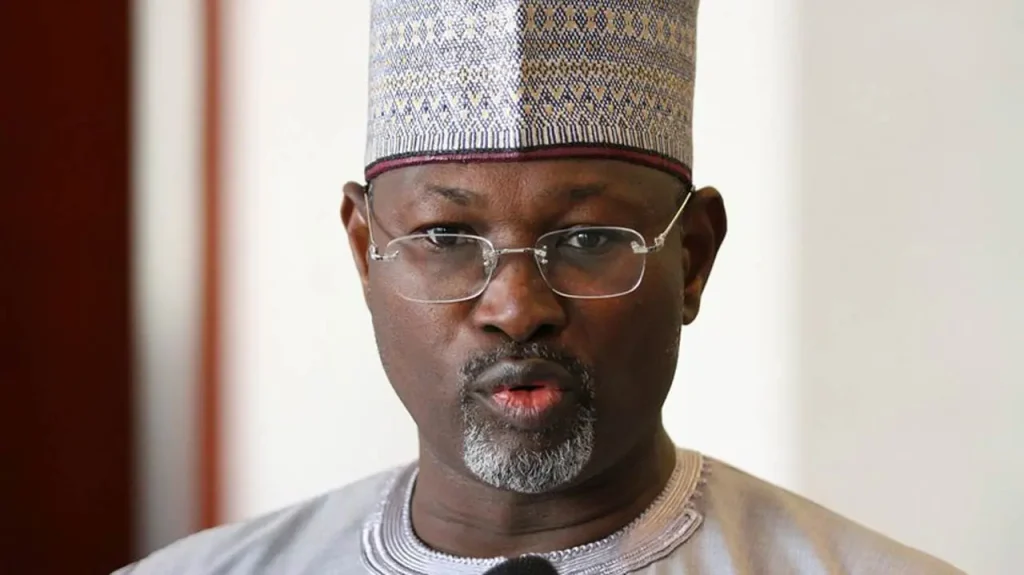Former Chairman of the Independent National Electoral Commission (INEC), Professor Attahiru Jega, has warned that despite nearly three decades of uninterrupted civil rule, Nigeria’s democracy remains dangerously underdeveloped.
Delivering a paper titled “Required Reforms for Stronger Democratic Institutions in Nigeria” at The Platform Nigeria: June 12 Edition, organised by The Covenant Nation Global in Lagos, Professor Jega criticised the country’s failure to transform democratic rituals into meaningful governance.
“We have perfected the rituals of democracy – elections, campaigns, political handovers – but failed to build its substance: institutions that work, leaders who serve, and a citizenry that trusts,” the political scientist from Bayero University, Kano, said. “We are stuck in a vicious cycle where those elected to protect democracy become its greatest threat.”
Jega emphasised the need for far-reaching institutional reforms to ensure accountability, strengthen the rule of law, and restore public confidence in governance. He singled out the constitutional immunity clause for executives as a critical obstacle.
“The immunity clause was meant to shield presidents and governors from frivolous litigation, but it has become a cover for corruption and impunity,” he said.
“Executives loot public funds, manipulate institutions, and trample on rights without consequence. For four or eight years, they operate above the law. This is not democracy; it is elected autocracy. The immunity clause must go.”
However, Jega noted that scrapping immunity is only a first step. He called for a comprehensive overhaul of the judiciary, which he said has become compromised by political interference, underfunding, and opaque appointments.
“A democracy without an independent judiciary is like a car without brakes – it is bound to crash,” he warned.
He advocated for reforms ensuring that judicial appointments are based on merit, experience, and integrity, rather than political loyalty. He also urged that all election petitions be resolved before winners are sworn into office to prevent the courts from becoming “post-election war rooms”.
Jega also expressed concern about the state of the media, which he said faces harassment, censorship, and co-optation by political actors.
“Journalists operate in fear, while some trade truth for patronage. A democracy cannot survive without a free and responsible press,” he stated, calling for full enforcement of the Freedom of Information Act and sanctions for violating agencies.
On electoral reform, Jega acknowledged INEC’s progress with technological innovations but warned that its credibility is still undermined by executive influence over leadership appointments.
He proposed unbundling the Commission to allow independent bodies to handle election offences and political party regulation, allowing INEC to focus solely on elections.
“Technology must be used transparently – electronic transmission of results, biometric accreditation, and digital tracking must be secure and standardised. Citizens must trust that votes count and that elections are free and fair,” he said.
Jega also criticised the excessive powers wielded by the executive arm at all levels of government, describing it as “bloated with power and surrounded by an ever-growing army of political appointees.”
He called for a drastic reduction in political appointments and full transparency in the allocation of public funds, especially security votes, which he said have become slush funds.
“Budgets must be respected, not treated as suggestions. We must demand the highest ethical standards from our leaders and reject mediocrity and nepotism,” he added.
Beyond institutional reforms, Jega stressed that citizen engagement is vital to democratic survival. He said many Nigerians have lost faith in the system due to corruption, impunity, and exclusion, but urged the public not to disengage.
“Democracy cannot be outsourced. Citizens must demand accountability, reject vote-buying, and participate actively,” he said.
He also advocated for legislative quotas for women, youth, persons with disabilities, and voting rights for Nigerians in the diaspora.
“The exclusion of these groups denies us the energy and innovation needed to revitalise our politics. A democracy that does not reflect its people’s diversity is not representative – it is a lie.”
Concluding his address, Jega called for what he described as a “democratic reset.”
“What Nigeria needs is not just periodic elections, but a full democratic reset. Civil rule is not the same as democratic governance. If we continue down this path, we risk democratic collapse.”
“This is a generational task, but one that cannot wait. We must remove executive immunity, strengthen the judiciary, empower the media, protect the vote, and curtail executive overreach. Nigeria is not doomed – but we are running out of time. Let the reforms begin. Let the people rise. Let democracy, finally, be real,” he declared.



